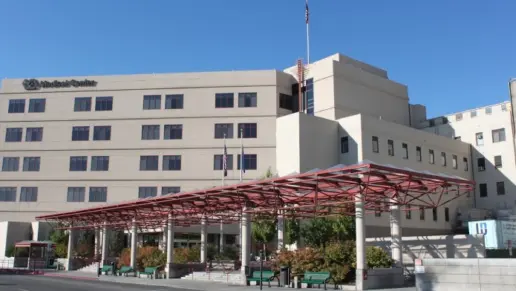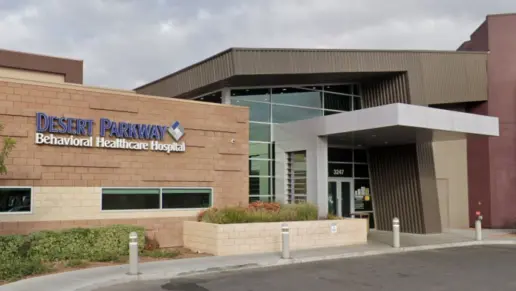About Luxe Treatment Center | Las Vegas Drug Rehab
Luxe Treatment Center is a drug and alcohol addiction recovery facility in Las Vegas, Nevada. Luxe believes in treating the person, not just the disease, and uses evidenced back practices to help adult clients recover from past traumas and learn to live free from addictive behaviors. They are a private facility with luxury amenities. As part of its mission to treat the whole person, Luxe combines traditional behavioral therapies with treatments that help clients discover joyful experiences without substance abuse.
Medical detox is the safest way for a client’s body to remove illicit substances, and for many clients, it is required to start treatment. During detox, clients reside at the facility under the care of medical staff, who help clients cope with withdrawal symptoms through therapy and medication. Clients also engage in education and therapy groups to prepare for the remainder of their treatment.
Inpatient treatment is a high level of care designed for clients with severe symptoms. Clients reside at the facility during their treatment plan, which can last a few weeks or several months, where they can be monitored and supported by staff 24 hours a day. Clients in the residential treatment plan do not leave the facility while in the program.
Clients work alongside a personal care team to develop a treatment plan that best meets their needs. Luxe uses therapy (in individual, group, and family settings) and education groups to teach clients about addiction, explore their addictions and associated behaviors, and develop coping skills. Luxe specializes in humanistic therapies like music therapy, art therapy, yoga, and physical training alongside traditional counseling.
The outpatient program is the next level of care following inpatient care. Clients live at home during outpatient care and visit the facility on a regular schedule to participate in treatment and undergo assessments. Outpatient care can be used as a transitional step following inpatient care but is also used independently by clients with mild symptoms.
MAT combines evidence backed treatment with medications approved for curbing cravings and withdrawal symptoms. MAT is commonly used when treating opioid disorders. MAT helps clients overcome distracting and disruptive symptoms to make them more receptive to treatment.
Clients with an addiction and a mental illness diagnosis can receive dual diagnosis care. This type of treatment expands on therapeutic methods to target the symptoms of both problems at the same time. Dual diagnosis can greatly reduce the risk of relapse.
Latest Reviews
Rehab Score
Gallery


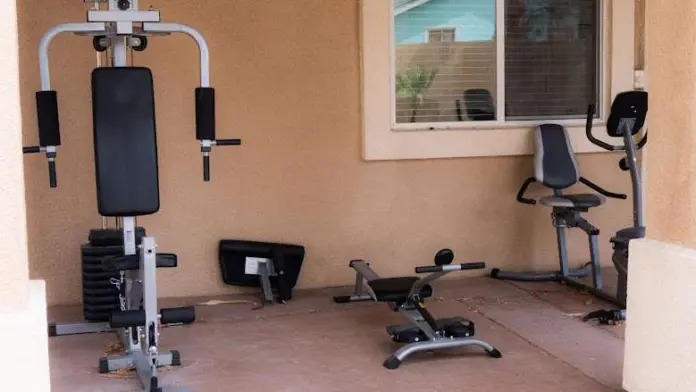
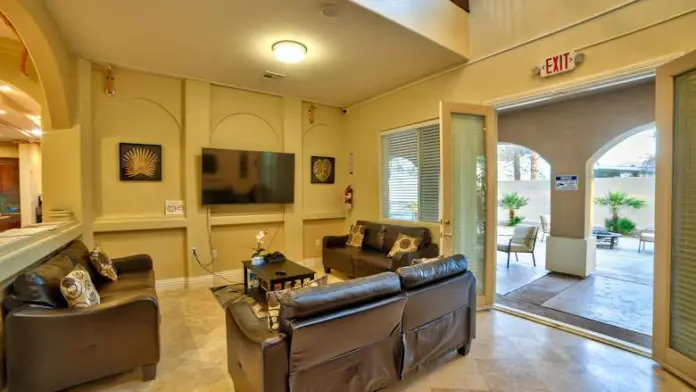
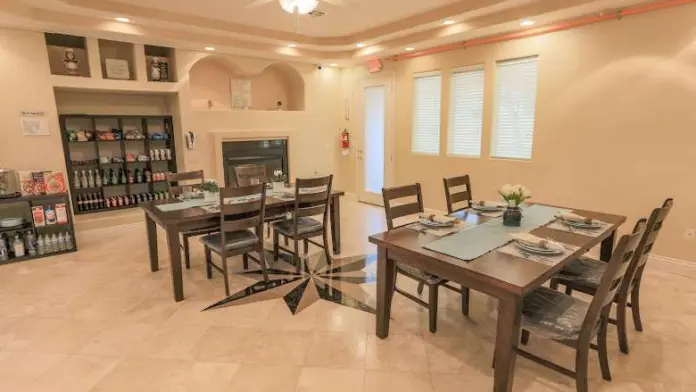
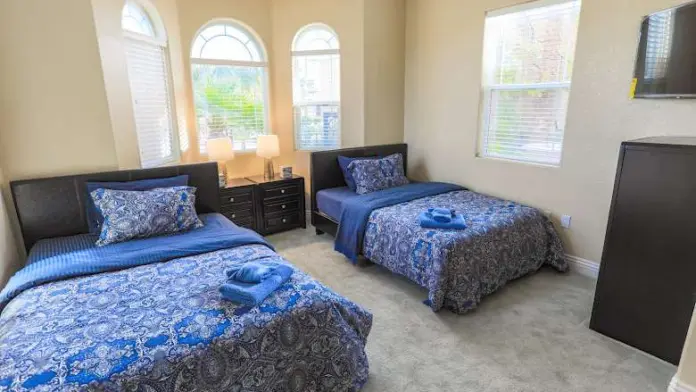
Location
Other Forms of Payment
Private insurance refers to any kind of healthcare coverage that isn't from the state or federal government. This includes individual and family plans offered by an employer or purchased from the Insurance Marketplace. Every plan will have different requirements and out of pocket costs so be sure to get the full details before you start treatment.
Self-pay involves paying for treatment out of your own pocket. You can use savings or credit, get a personal loan, or receive help from family and friends to fund your treatment. If you don't have insurance or your insurance plan doesn't cover a specific program, self-pay can help ensure you still get the care you need.
Medicare is a federal program that provides health insurance for those 65 and older. It also serves people under 65 with chronic and disabling health challenges. To use Medicare for addiction treatment you need to find a program that accepts Medicare and is in network with your plan. Out of pocket costs and preauthorization requirements vary, so always check with your provider.
Medicaid is a state based program that helps lower-income individuals and families pay for healthcare. Medicaid covers addiction treatment so those enrolled can use their coverage to pay for rehab. When a program accepts Medicaid the client often pays very little or nothing out of their own pocket.
Military members, veterans, and eligible dependents have access to specific insurance programs that help them get the care they need. TRICARE and VA insurance can help you access low cost or no cost addiction and mental health treatment. Programs that accept military insurance often have targeted treatment focused on the unique challenges military members, veterans, and their families face.
Addiction Treatments
Levels of Care
Programs



Clinical Services
Cognitive Behavioral Therapy (CBT) is a therapy modality that focuses on the relationship between one's thoughts, feelings, and behaviors. It is used to establish and allow for healthy responses to thoughts and feelings (instead of unhealthy responses, like using drugs or alcohol). CBT has been proven effective for recovering addicts of all kinds, and is used to strengthen a patient's own self-awareness and ability to self-regulate. CBT allows individuals to monitor their own emotional state, become more adept at communicating with others, and manage stress without needing to engage in substance abuse.
If you're experiencing substance use disorder, dialectical behavior therapy in Nevada can help you reduce cravings, learn healthier ways to manage stress, and avoid situations that can lead to substance abuse. Treatment includes one on one sessions with your therapist as well as group sessions to practice the skills you're learning.
Group therapy opportunities in Nevada allow you to see how successful recovery behaviors are modeled by your peers. You learn conflict resolution skills and are empowered to recognize your strengths and overcome your addiction.
Individual therapy provides you with a confidential setting to explore the complex factors that contribute to drug and alcohol addiction. Your therapist can provide tailored support and help you develop healthy coping strategies, improve self control, and build a foundation for sustainable sobriety.
Research shows that motivational interviewing is an effective approach for individuals who are unprepared for change. They may be resistant to change or simply insecure in their abilities to make changes. This therapeutic method allows clients to explore their options, reach their own conclusions, and feel empowered to make changes.
Trauma therapy uses trauma focused care to help you understand and manage your emotional and physical responses. Using therapeutic interventions, you learn to reframe the experience. This helps to reduce your anxiety and build your resilience to face future challenges and gain control over your life.
Sessions for couples therapy may involve joint meetings with the counselor as well as individual sessions. Between sessions, both partners are asked to do "homework," which involves practicing the insights and behaviors they learned about during therapy.
During family therapy sessions, your therapist facilitates discussions that help members of the family unit understand addiction and how it affects the entire family, providing you with coping strategies that help to strengthen the family unit.
A diet packed with nutrients is crucial for combatting addiction. The right foods give you the energy you need for success in therapy and daily tasks. Nutrition therapy during rehab will help you get these nutrients and learn how to follow a healthy dietary plan long term.
Creativity is inherently healing, and can help those in recovery express thoughts or feelings they might not otherwise be able to. Creative arts therapy can include music, poetry/writing, painting, sculpting, dance, theater, sandplay, and more. Unlike traditional art, the final product matters far less than the experience of creation and expression itself.
Participating in experiential therapy allows you to directly experience your emotions. You'll focus on the experience, such as animal care, music, drama, or art, to identify emotions and how they affect your behavior. With these insights, you can develop proactive methods to cope with challenges in the future.
Amenities
-
Gym
-
Yoga Studio
-
Residential Setting
-
Private Rooms
-
Hiking
-
Mountain Views
-
Walking Trails
Accreditations

The Commission on Accreditation of Rehabilitation Facilities (CARF) is a non-profit organization that specifically accredits rehab organizations. Founded in 1966, CARF's, mission is to help service providers like rehab facilities maintain high standards of care.
CARF Accreditation: Yes

State Licenses are permits issued by government agencies that allow rehab organizations to conduct business legally within a certain geographical area. Typically, the kind of program a rehab facility offers, along with its physical location, determines which licenses are required to operate legally.
State License: Nevada

The Joint Commission, formerly known as JCAHO, is a nonprofit organization that accredits rehab organizations and programs. Founded in 1951, the Joint Commision's mission is to improve the quality of patient care and demonstrating the quality of patient care.
Joint Commission Accreditation: Yes
Contact Information
4845 N. Riley St.
Las Vegas, NV 89149
